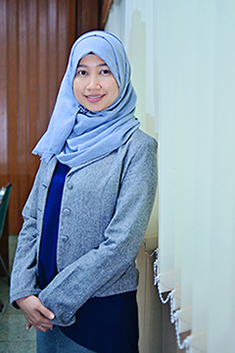Knowledge and Perception on Overclaim against the Behaviors of Implementing the COVID-19 Prevention Protocol Communities in Indonesia
Downloads
Background: COVID-19 occurs in various countries and has been declared a pandemic by WHO. Multiple efforts have been made to reduce the number of cases of COVID-19. However, the incidence of COVID–19 continues to increase, along with control efforts carried out by various parties, causing overclaims for the prevention or treatment of COVID–19. Objective This study aimed to determine the relationship between knowledge and public perception of the behavior of implementing the COVID-19 prevention protocol in Central Java Province. Methods: This cross-sectional study used primary data collected online via WhatsApp, Telegram, Instagram, and Facebook in December 2020. A total of 1,098 of 1,115 respondents passed the inclusion and exclusion criteria. Backward Elimination is used to determine factors related to behavior in the multivariable model stage using multiple logistic regression. Results: The knowledge, perception, and behaviors prevalence of implementing COVID-19 prevention protocols were good & enough 79.1% (95% CI 76.63 – 81.45), 96.6% (95% CI 95.38 – 97.55), and 92.3% (95% CI 90.62 – 93.78) respectively. The result revealed that Knowledge (adjOR = 2.034, 95% CI 1.253 - 3.302, P = 0.004) and Perception (adjOR = 4.064, 95% CI 1.859 - 8.882, P = < 0.001) were possibly associated with behaviors of implementing COVID-19 prevention protocols among communities in Central Java Province. ConclusionThis study found a slight prevalence of good & enough knowledge, perception, and behaviors of implementing COVID-19 prevention protocols in a representative sample among Communities in Central Java Province. Knowledge and perceptions were statistically significant with behaviors.
Adhena, G., & Hidru, H. D. (2020). Knowledge, Attitude, and Practice of High-Risk Age Groups to Coronavirus Disease-19 Prevention and Control in Korem District, Tigray, Ethiopia: Cross-Sectional Study. Infection and Drug Resistance 13; 3801–3809. doi: 10.2147/IDR.S275168.
Albaqawi, Mohammad, H., Alquwez, N., Balay-odao, E., Bajet, J. B., Alabdulaziz, H., Alsolami, F., Tumala, R. B., Alsharari, A. F., Hanan, M. M. T., Felemban, E. M. & Cruz, J. P. (2020). Nursing Students' Perceptions, Knowledge, and Preventive Behaviors Toward COVID-19: A Multi-University Study. Frontiers in Public Health; 8; 1–9. doi: 10.3389/fpubh.2020.573390.
Azlan, A. A., Hamzah, M. R., Sern, T. J., Ayub, S. H. & Mohamad, E. (2020). Public Knowledge, Attitudes and Practices towards COVID-19: A Cross-Sectional Study in Malaysia. PLoS ONE; 15; 1–15. doi: 10.1371/journal.pone.0233668.
Barrett, C. & Cheung, K. L. (2021). Knowledge, Socio-Cognitive Perceptions and the Practice of Hand Hygiene and Social Distancing during the COVID-19 Pandemic: A Cross-Sectional Study of UK University Students. BMC Public Health; 21; 1–18. doi: 10.1186/s12889-021-10461-0.
Betsch, C., Korn, L., Burgard, T., Gaissmaier, W., Felgendreff, L., Eitze, S., Sprengholz, P., Böhm, R., Stollorz, V., Ramharter, M., Promies, N., De Bock, F., Schmid, P., Renner, B., Wieler, L. H. & Bosnjak, M. (2021). The Four Weeks before Lockdown during the COVID-19 Pandemic in Germany: A Weekly Serial Cross-Sectional Survey on Risk Perceptions, Knowledge, Public Trust and Behaviour, 3 to 25 March 2020. Euro Surveillance: Bulletin Europeen Sur Les Maladies Transmissibles = European Communicable Disease Bulletin; 26; 1–13. doi: 10.2807/1560-7917.ES.2021.26.42.2001900.
Bhatt, N., Bhatt, B., Gurung, S., Dahal, S., Jaishi, A. R., Neupane, B. & Budhathoki, S. S. (2020). Perceptions and Experiences of the Public Regarding the COVID-19 Pandemic in Nepal: A Qualitative Study Using Phenomenological Analysis. BMJ Open; 10; 1–11. doi: 10.1136/bmjopen-2020-043312.
Budiman & Agus Riyanto. (2013). Kapita Selekta Kuesioner Pengetahuan dan Sikap Dalam Penelitian Kesehatan. Jakarta: Salemba Medika.
Cha, M., Cha, C., Singh, K., Lima, G., Ahn, Y. Y., Kulshrestha, J. & Varol, O. (2021). Prevalence of Misinformation and Factchecks on the COVID-19 Pandemic in 35 Countries: Observational Infodemiology Study. JMIR Human Factors; 8; 1–6. doi: 10.2196/23279.
Cheng, M., Yin, C., Nazarian, S. & Bogdan, P. (2021). Deciphering the Laws of Social Network-Transcendent COVID-19 Misinformation Dynamics and Implications for Combating Misinformation Phenomena. Scientific Reports; 11; 1–14. doi: 10.1038/s41598-021-89202-7.
Chesser, A., Ham, A. D. & Woods, N. K. (2020). Assessment of COVID-19 Knowledge Among University Students: Implications for Future Risk Communication Strategies. Health Education and Behavior; 47; 540–43. doi: 10.1177/1090198120931420.
Fanelli, D. (2009). How Many Scientists Fabricate and Falsify Research? A Systematic Review and Meta-Analysis of Survey Data. PLOS ONE; 4; 1-11. doi: 10.1371/journal.pone.0005738.
Garnesia, I. (2020). Menguji Klaim Herbavid-19 Sebagai Obat COVID-19. Jakarta: Tirto Id.
Gohel, K. H., Patel, P. B., Shah, P. M., Patel, J. R., Pandit, N. & Raut, A. (2021). Knowledge and Perceptions about COVID-19 among the Medical and Allied Health Science Students in India: An Online Cross-Sectional Survey. Clinical Epidemiology and Global Health; 9; 104–109. doi: 10.1016/j.cegh.2020.07.008.
Guan, W., Ni, Z., Hu, Y., Liang, W., Ou, C., He, J., Liu, L., Shan, H., Lei, H., Hui, D. S. C., Du, B., Li, L., Zeng, G., Yuen, K., Chen, R., Tang, C., Wang, T., Chen, P., Xiang, J., Li, S., Wang, J., Liang, Z., Peng, Y., Wei, L., Liu, Y., Hu, Y., Peng, P., Wang, J., Liu, J., Chen, Z., Li, G., Zheng, G., Qiu, S., Luo, J., Ye, C., Zhu, S. & Zhong, N. (2020). Clinical Characteristics of Coronavirus Disease 2019 in China. New England Journal of Medicine; 382; 1708–1720. doi: 10.1056/nejmoa2002032.
Handebo, S., Adugna, A., Kassie, A. & Shitu, K. (2021). Determinants of COVID-19-Related Knowledge and Preventive Behaviours among Students in Reopened Secondary Schools: Cross-Sectional Study. BMJ Open; 11; 1–10. doi: 10.1136/bmjopen-2021-050189.
Islam, M. S., Sarkar, T., Khan, S. H., Kamal, A. H. M., Hasan, S. M. M., Kabir, A., Yeasmin, D., Islam, M. A., Chowdhury, K. I. A., Anwar, K. S., Chughtai, A. A. & Seale, H. (2020). COVID-19-Related Infodemic and Its Impact on Public Health: a Global Social Media Analysis. American Journal of Tropical Medicine and Hygiene; 103; 1621–1629. doi: 10.4269/ajtmh.20-0812.
Jalloh, M. F., Nur, A. A., Nur, S. A., Winters, M., Bedson, J., Pedi, D., Prybylski, D., Namageyo-Funa, A., Hageman, K. M., Baker, B. J., Jalloh, M. B., Eng, E., Nordenstedt, H. & Hakim, A. J. (2021). Behaviour Adoption Approaches during Public Health Emergencies: Implications for the COVID-19 Pandemic and Beyond. BMJ Global Health; 6; 1–9. doi: 10.1136/bmjgh-2020-004450.
Johns Hopkins University and Medicine. (2022). Johns Hopkins Coronavirus Resource Center. Baltimore: The Johns Hopkins University School of Medicine.
Li, J. B., Yang, A., Dou, K., Wang, L. X., Zhang, M. C. & Lin, X. Q. (2020). Chinese Public's Knowledge, Perceived Severity, and Perceived Controllability of COVID-19 and Their Associations with Emotional and Behavioural Reactions, Social Participation, and Precautionary Behaviour: A National Survey. BMC Public Health; 20; 1–14. doi: 10.1186/s12889-020-09695-1.
Li, Q. (2021). The Efficacy, Safety and Immunogenicity Study of Inactivated SARS-CoV-2 Vaccine for Preventing Against COVID-19. https://clinicaltrials.gov/ct2/show/NCT04659239. Accessed: 19 March 2021.
Lim, V. W., Lim, R. L., Tan, Y. R., Soh, A. S. E., Tan, M. X., Othman, N. B., Dickens, S. B., Thein, T. L., Lwin, M. O., Ong, R. T. H., Leo, Y. S., Lee, V. J. & Chen, M. I. C. (2021). Government Trust, Perceptions of Covid-19 and Behaviour Change: Cohort Surveys, Singapore. Bulletin of the World Health Organization; 99; 92–101. doi: 10.2471/BLT.20.269142.
Mahmoud, A. B., Polay, D. H., Reisel, W. D., Fuxman, L., Grigoriou, N., Mohr, I. & Aizouk, R. (2021). Who's More Vulnerable? a Generational Investigation of COVID-19 Perceptions' Effect on Organisational Citizenship Behaviours in the MENA Region: Job Insecurity, Burnout and Job Satisfaction as Mediators. BMC Public Health; 21; 1–17. doi: 10.1186/s12889-021-11976-2.
Manchia, M., Gathier, A. W., Yapici-Eser, H., Schmidt, M. V., de Quervain, D., Amelsvoort, T. V., Jonathan, B., Cryan, J. F., Howes, O. D., Pinto, L., van der Wee, N. J., Domschke, K., Branchi, I. & Vinkers, C. H. (2022). The Impact of the Prolonged COVID-19 Pandemic on Stress Resilience and Mental Health: A Critical Review across Waves. Annals of Oncology; 55; 22–83.
Mao, Y., Chen, H., Wang, Y., Chen, S., Gao, J., Dai, J., Jia, Y., Xiao, Q., Zheng, P. & Fu, H. (2021). How Can the Uptake of Preventive Behaviour during the COVID-19 Outbreak Be Improved? An Online Survey of 4827 Chinese Residents. BMJ Open; 11; 1–11. doi: 10.1136/bmjopen-2020-042954.
Mawalia, K. A. (2020). Peneliti UNAIR Temukan Lima Kombinasi Obat Efektif Lawan Corona. https://news.unair.ac.id/2020/06/12/peneliti-unair-temukan-lima-kombinasi-obat-yang-efektif-lawan-corona-2/?lang=id. Accessed: 10 March 2021.
MoH Indonesia. (2020). Pedoman Kesiapsiagaan Menghadapi Coronavirus Disease (Covid-19). Jakarta: Kementerian Kesehatan Republik Indonesia.
Ngwewondo, A., Nkengazong, L., Ambe, L. A., Ebogo, J. T., Mba, F. M., Goni, H. O., Nyunaí¯, N., Ngonde, M. C. & Oyono, J. L. E. (2020). Knowledge, Attitudes, Practices of/towards COVID 19 Preventive Measures and Symptoms: A Cross-Sectional Study during the Exponential Rise of the Outbreak in Cameroon. PLoS Neglected Tropical Diseases; 14; 1–15. doi: 10.1371/journal.pntd.0008700.
Nwagbara, U. I., Osual, E. C., Chireshe, R., Bolarinwa, O. A., Saeed, B. Q., Khuzwayo, N. & Hlongwana, K. W. (2021). Knowledge, Attitude, Perception, and Preventative Practices towards COVID-19 in Sub-Saharan Africa: A Scoping Review. PLoS ONE; 16; 1–20. doi: 10.1371/journal.pone.0249853.
Olum, R., Kajjimu, J., Kanyike, A. M., Chekwech, G., Wekha, G., Nassozi, D. R., Kemigisa, J., Mulyamboga, P., Muhoozi, O. K., Nsenga, L., Lyavala, M., Asiimwe, A. & Bongomin, F. (2020). Perspective of Medical Students on the COVID-19 Pandemic: Survey of Nine Medical Schools in Uganda. JMIR Public Health and Surveillance; 6; 1–12. doi: 10.2196/19847.
Pauline, M., Ngozichukwu, C., Azubuike, C. M. C., Mbachu, I. I., Ndukwu, C. I., Ezeuko, A. Y. A., Udigwe, I. B., Nnamani, C. P., Umeh, U. M., Ezeagwuna, D. A., Onah, S. K., Eze, H. O., Okereke, U. C. & Orji-Ifeanyi, E. N. (2020). COVID-19 Infection: Knowledge, Attitude, Practices, and Impact among Healthcare Workers in a South-Eastern Nigerian State. Journal of Infection in Developing Countries; 14; 943–52. doi: 10.3855/JIDC.13248.
PT Bio Farma. (2020). Efficacy, Safety and Immunogenicity Study of SARS-CoV-2 Inactivated Vaccine (COVID-19). Rockville: U.S. National Library of Medicine.
Rattay, P., Michalski, N., Domanska, O. M., Kaltwasser, A., de Bock, F., Wieler, L. H. & Jordan, S. (2021). Differences in Risk Perception, Knowledge and Protective Behaviour Regarding COVID-19 by Education Level among Women and Men in Germany. Results from the COVID-19 Snapshot Monitoring (COSMO) Study. PLoS ONE; 16; 1–26. doi: 10.1371/journal.pone.0251694.
Riwidikdo, H. & Setiawan, A. (2006). Statistik Kesehatan: Belajar Mudah Teknik Analisis Data Dalam Penelitian Kesehatan (plus Aplikasi SPSS). Yogyakarta: Mitra Cendekia Press.
Rothan, H. A. & Byrareddy, S. N. (2020). The Epidemiology and Pathogenesis of Coronavirus Disease (COVID-19) Outbreak. Journal of Autoimmunity Journal; 109; 1-4.
Saah, F. I., Amu, H., Seidu, A. A. & Bain, L. E. (2021). Health Knowledge and Care Seeking Behaviour in Resource-Limited Settings amidst the COVID-19 Pandemic: A Qualitative Study in Ghana. PLoS ONE; 16; 1–15. doi: 10.1371/journal.pone.0250940.
Sallam, M., Dababseh, D., Yaseen, A., Al-Haidar, A., Taim, D., Eid, H., Ababneh, N. A., Bakri, F. G. & Mahafzah, A. (2020). COVID-19 Misinformation: Mere Harmless Delusions or Much More? A Knowledge and Attitude Cross-Sectional Study among the General Public Residing in Jordan. PLoS ONE; 15; 1–18. doi: 10.1371/journal.pone.0243264.
Simanjorang, C., Tooy, G., Wuaten, G. & Pangandaheng, N. (2021). Knowledge, Attitudes, and Practices Towards COVID-19 among North Sulawesi Indonesia Residents. Journal of Health Education; 6; 57–64. doi: 10.1080/10556699.1994.10603001.
Stewart, R., Madonsela, A., Tshabalala, N., Etale, L. & Theunissen, N. (2022). The Importance of Social Media Users' Responses in Tackling Digital COVID-19 Misinformation in Africa. Digital Health; 8; 1-15. doi: 10.1177/20552076221085070.
Å uriņa, S., Martinsone, K., Perepjolkina, V., Kolesnikova, J., Vainik, U., Ruža, A., Vrublevska, J., Smirnova, D., Fountoulakis, K. N. & Rancans, E. 2021. "Factors Related to COVID-19 Preventive Behaviors: A Structural Equation Model. Frontiers in Psychology; 12; 1–15. doi: 10.3389/fpsyg.2021.676521.
Susanna, D. (2020). When Will the COVID-19 Pandemic in Indonesia End?. Kesmas; 15; 160–162. doi: 10.21109/KESMAS.V15I4.4361.
Tangcharoensathien, V., Calleja, N., Nguyen, T., Purnat, T., D'Agostino, M., Garcia-Saiso, S., Landry, M., Rashidian, A., Hamilton, C., AbdAllah, A., Ghiga, I., Hill, A., Hougendobler, D., van Andel, J., Nunn, M., Brooks, I., Sacco, P. L., de Domenico, M., Mai, P., Gruzd, A., Alaphilippe, A. & Briand, S. (2020). Framework for Managing the COVID-19 Infodemic: Methods and Results of an Online, Crowdsourced Who Technical Consultation. Journal of Medical Internet Research; 22; 1–8. doi: 10.2196/19659.
Vijaykumar, S., Rogerson, D. T., Jin, Y. & Costa, M. S. O. (2021). Dynamics of Social Corrections to Peers Sharing COVID-19 Misinformation on WhatsApp in Brazil. Journal of the American Medical Informatics Association: JAMIA; 29; 33–42. doi: 10.1093/jamia/ocab219.
WHO. (2020). WHO Director-General's Opening Remarks at the Media Briefing on COVID-19: WHO Director General's Speeches. https://www.who.int/director-general/speeches/detail/who-director-general-s-opening-remarks-at-the-media-briefing-on-covid-19---11-march-2020. Accessed: 11 March 2021.
WHO. (2022). COVID-19 Weekly Epidemiological Update. World Health Organization; 58; 1–23.
Wibowo, Y. C. (2020). 4 Alasan Kita Perlu Tolak Klaim Keampuhan Obat Herbal Di Tengah Pandemi COVID-19: The Conversation. https://theconversation.com/4-alasan-kita-perlu-tolak-klaim-keampuhan-obat-herbal-di-tengah-pandemi-covid-19-140642. Accessed: 11 March 2021.
Xu, J. & Peng, Z. (2015). People at Risk of Influenza Pandemics: The Evolution of Perception and Behavior. PLoS ONE; 10; 1–14. doi: 10.1371/journal.pone.0144868.
Zegarra-Valdivia, Vilca, C. & Guerrero, A. (2020). Knowledge, Perception and Attitudes in Regard to COVID-19 Pandemic in Peruvian Population. Pediatria Integral; 24; 69–70.
Copyright (c) 2022 JURNAL FARMASI DAN ILMU KEFARMASIAN INDONESIA

This work is licensed under a Creative Commons Attribution-NonCommercial-ShareAlike 4.0 International License.
1. The copyright of this journal belongs to the Editorial Board and Journal Manager with the author's knowledge, while the moral right of the publication belong to the author.
2. The formal legal aspect of journal publication accessibility refers to the Creative Commons Attribution-Non-Commercial-Share Alike (CC BY-NC-SA), which implies that the publication can be used for non-commercial purposes in its original form.
3. Every publication (print/electronic) is open access for educational, research, and library purposes. In addition to the objectives mentioned above, the editorial board is not responsible for copyright infringement


.jpg)















